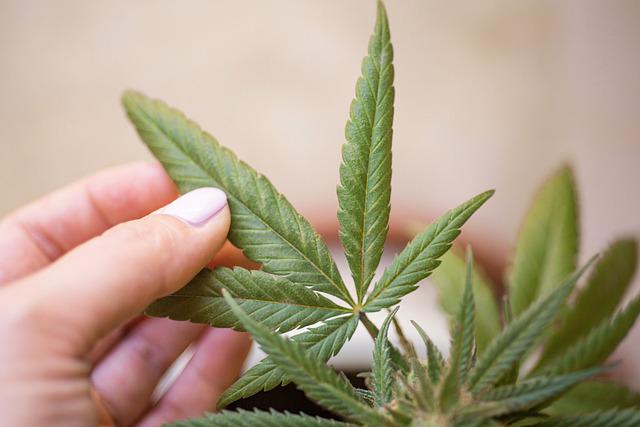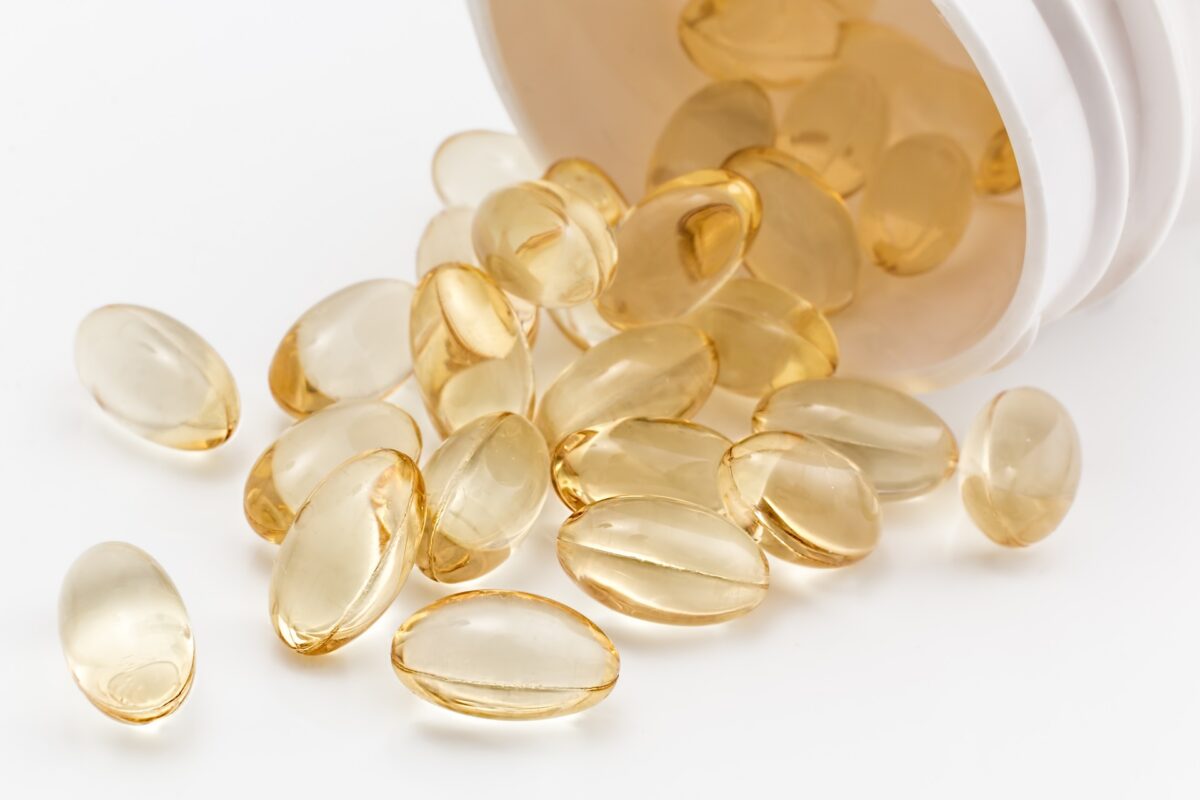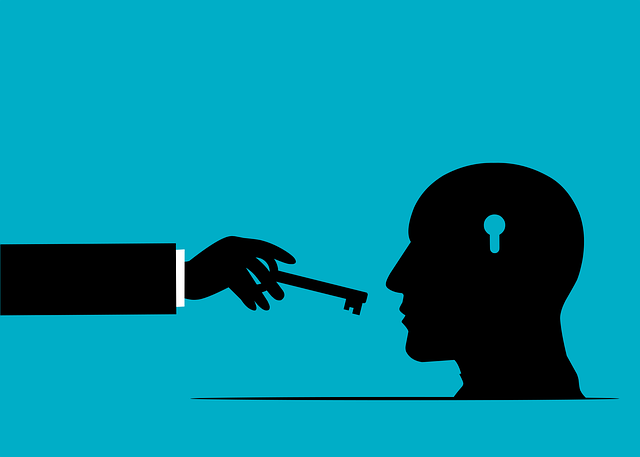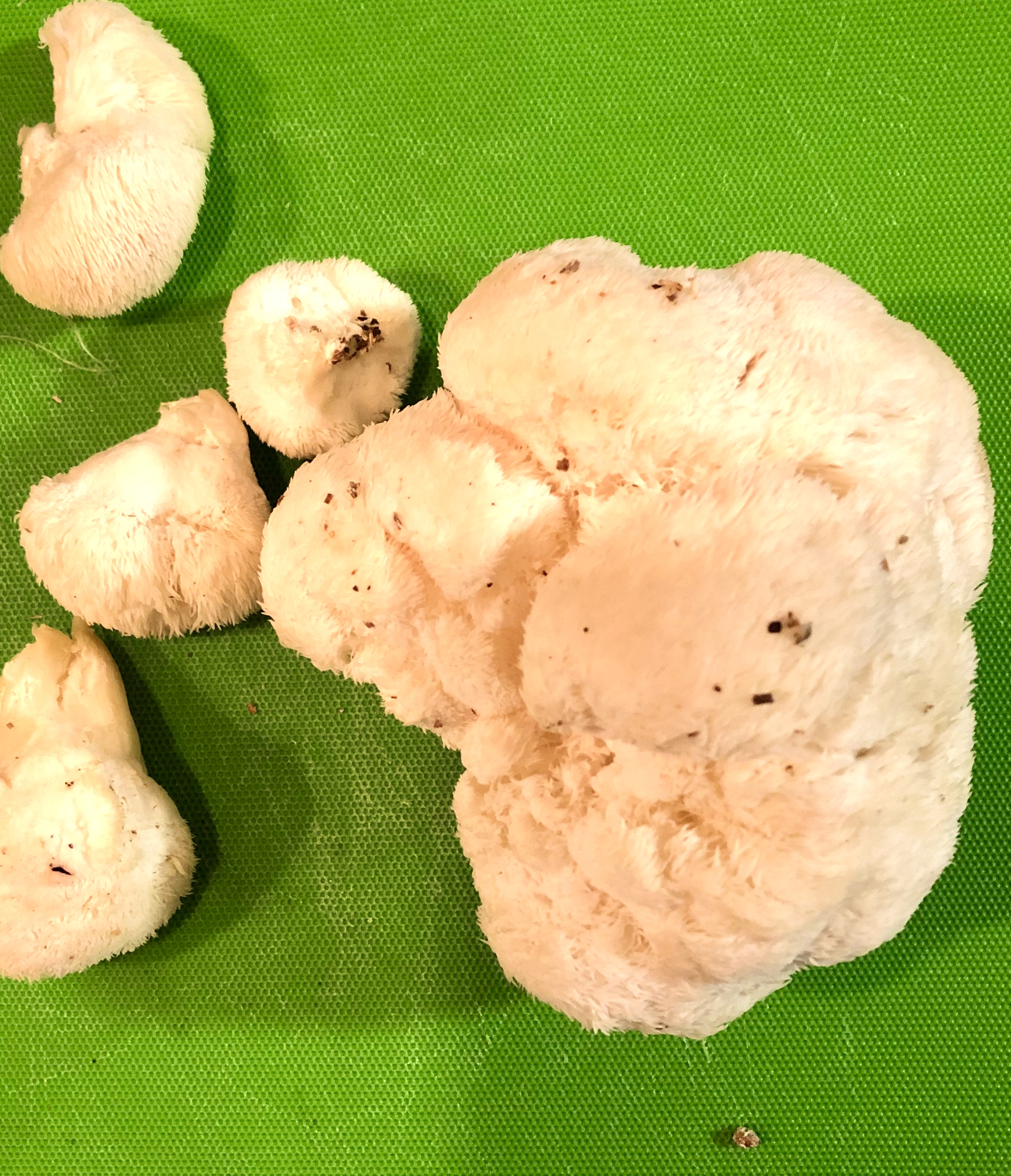Ah, juice—it’s a favorite snack and treat among kids. But is it really as bad for them as everyone says? Let’s explore the pros and cons of drinking juice to get a better understanding of what kind of impact it can have on our little ones.
The Pros
Juice may be a way to help picky eaters get their daily dose of vitamins and minerals. Most juices contain vitamin C, which helps boost immunity and ward off illnesses such as colds and flu. Also, if your child isn’t getting enough fruits and veggies in their diet, including juice in their daily routine can help make up for that.
According to clinical research, some of the best juices for kids to consume are those that contain fruits and vegetables. For example, a mixture of carrot, spinach and apple juice is packed with vitamins, minerals and antioxidants.
Carrots are an especially excellent source of Vitamin A and beta-carotene which can help protect against free radical damage and may reduce the risk of certain cancers. Spinach is also high in nutrients including folate, iron and magnesium. Additionally, it is a great source of dietary fiber which can support digestive health as well as provide satiation.
Lastly, apples are rich in antioxidants such as quercetin which helps boost the immune system and fight inflammation. All together these three ingredients make up a nutritious juice that not only tastes delicious but can help keep your kids healthy too!
Other beneficial juices for kids include orange juice which contains high amounts of Vitamin C; pear juice which offers several B-complex vitamins; cranberry juice which may help reduce the risk of bladder infections; mango juice with its abundance of Vitamin A and K; and pomegranate juice containing antioxidants that may reduce the risk of chronic diseases like heart disease or diabetes.
Here’s a list of 10 low sugar juice options for kids that are available on Amazon.com
-
Apple & Eve 100% Juice, Fruits & Veggies, 8-Ounce Bottle (Pack of 32)
-
R.W. Knudsen Family Just Juice, Organic Apple, 6 Ounce Bottle (Pack of 12)
-
V8 100% Vegetable Juice, Variety Pack, 11.5 Ounce Cans (Pack of 24)
-
Apple & Eve Sesame Street Elmo’s Punch 100% Fruit Juice, 6.75-Ounce Box (Pack of 18)
-
Tree Top 100% Juice Variety Pack Apple Kiwi Pineapple and Strawberry Watermelon 8 Fl Oz Boxes – Pack of 10
-
Welch’s Kids 100% Fruit Punch and Tangy Strawberry Orange Juice Drink Variety Pack – 10 Fl Oz Cans – Pack of 32
-
Capri Sun 100% Juice Variety Pack – 10ct/6 fl oz Pouches
-
Ocean Spray White Cranberry Blueberry Cocktail 4 pk 8 oz Bottles
-
Bolthouse Farms Organic Unsweetened Peach Mango Passion Fruit Beverage 52 fl oz Bottle
-
V8 +Energy Superfruit Fusion Breakfast Beverage 8 fl oz Can (Pack of 24)
The Cons
While juice is packed with essential vitamins and minerals, it also contains a lot of added sugars. Too much sugar can lead to tooth decay, weight gain, and diabetes over time. If you want your child to drink juice, be sure to limit the amount they drink each day (usually no more than 4-6 ounces). You should also choose 100% fruit juices over sugary drinks like soda or sports drinks.
In addition, some types of juices can be high in acidity—especially citrus juices like orange or grapefruit—which can irritate sensitive stomachs or cause heartburn in some children. To avoid this problem, you could dilute the juice with water before giving it to your child. Finally, always check the label before buying any kind of juice for your child; some juices may contain artificial flavors or sweeteners that are not good for kids’ health.
Recent clinical research has shed light on the potentially unhealthy effects that juice may have on children’s health. A major study conducted by Harvard Medical School found that drinking more than 8 ounces of fruit juice per day was associated with more weight gain in adolescents, due to the high sugar content and lack of fiber present in many juices.
Additionally, a report from the European Society of Cardiology found that consuming large amounts of sugary drinks like juice was linked to an increased risk for cardiovascular disease. As mentioned previously, some researchers have suggested that the acidity of many juices can lead to tooth decay and erosion for young children, which is especially concerning given the potential long-term damage it could do to their oral health. Parents should be aware of these potential risks and take steps to limit their child’s consumption of juice if they wish to ensure they maintain healthy weight levels and avoid developing cavities or other dental issues later on in life.
Conclusion
When it comes down to it, there are both pros and cons when it comes to letting your children drink juice. As long as you set limits on how much they drink each day (no more than 4-6 ounces) and you’re careful about what kind of juices they consume (100% fruit only!), there’s no harm in letting them enjoy a glass every now and then!
Many people have tried marijuana as an alternative to traditional pharmaceuticals in order to help them sleep. The compounds found in cannabis, particularly cannabidiol (CBD) and tetrahydrocannabinol (THC), have been said to ease the symptoms of insomnia. Before you try cannabis for sleep, it’s important to understand the potential benefits and risks. Let’s take a closer look.
The Benefits of Cannabis for Sleep
One of the most common benefits associated with using marijuana for sleep is that it can reduce stress and anxiety. Stress and anxiety can be major contributors to poor sleep quality, so any relief from those conditions can lead to improved rest. Some studies have also found that CBD may help reduce REM behavioral disorder (RBD), a condition characterized by excessive movement during REM sleep that can interfere with proper restorative sleep. Other studies suggest that THC may help increase total sleep time, particularly in older adults who are more prone to insomnia.
A study published in the journal Neuropsychopharmacology found that individuals who consumed cannabis before bed reported improved sleep quality, longer sleeping duration, and reduced symptoms of insomnia compared to those who did not. These findings were further supported by an analysis conducted by the American Academy of Sleep Medicine which concluded that people who used cannabis regularly had better sleep architecture than those who did not. Additionally, a study published in the European Journal of Internal Medicine showed that medical marijuana users had significantly lower rates of insomnia than those in the control group.
The Risks of Cannabis for Sleep
On the other hand, there are some risks associated with using marijuana for sleep. One concern is that some people may develop tolerance or dependence on cannabis over time if they use it too frequently or at too high a dose. This could result in difficulty sleeping without cannabis use or other unwanted side effects such as withdrawal symptoms when stopping use abruptly. Additionally, there is concern that long-term cannabis use may disrupt circadian rhythms (the body’s internal clock). This could lead to daytime fatigue and make it more difficult to fall asleep at night despite regular use of marijuana products intended to improve sleep quality.
A recent 2020 study found that frequent users of cannabis-based products are at greater risk for developing dependence and withdrawal symptoms than occasional users. Furthermore, evidence suggests that regular use of cannabis products may reduce overall sleep efficiency and duration. The exact mechanisms responsible for these changes remain unclear but could involve alterations in the normal function of hormones such as cortisol or melatonin, which play vital roles in managing sleep-wake cycles in the body.
Conclusion
While marijuana products like CBD oil have been used traditionally as natural sleep aids, it’s important to weigh the potential benefits against the potential risks before you start using them regularly for this purpose. As with any supplement or medication, talk to your doctor about your options and discuss any existing health conditions before starting a new treatment plan involving cannabis products for better restful nights’ sleeps. With their guidance, you can determine whether marijuana is an appropriate option for treating your sleeplessness and other related disorders safely and effectively.
For more information on medicinal cannabis use check out these articles CBD For Sleep Cannabis Therapy.
Have you ever woken up in the morning feeling groggy and exhausted? That’s because our bodies naturally respond to light. In fact, bright light upon waking is essential for maintaining a healthy sleep cycle—not just for one day, but for days, weeks, and even months. In this blog post, we’ll explore why bright light upon waking is so important and how it can help improve your health and well-being.
What Is a Sleep Cycle?
A sleep cycle is the process by which our bodies move through different stages of wakefulness and sleep throughout the night. It’s made up of two main phases: rapid eye movement (REM) sleep and non-rapid eye movement (NREM) sleep. During NREM sleep, our bodies are getting ready for REM sleep, which is when we dream. Each night, we usually go through 4–5 cycles of REM and NREM sleep that last about 90 minutes each.
The Role of Light in Our Sleep Cycles
Light plays an essential role in regulating our circadian rhythm—our body’s natural internal clock that tells us when to be awake or asleep. When it gets dark outside, a hormone called melatonin is released into our systems to help us fall asleep. When it gets light out again, another hormone called cortisol signals to us that it’s time to wake up and get going. Without adequate exposure to bright light upon waking, our circadian rhythms can become disrupted—which could lead to poor quality of sleep over time as well as other negative health effects such as fatigue, irritability, depression or anxiety.
Benefits of Bright Light Upon Waking
Exposing ourselves to bright light first thing in the morning helps reset our internal clocks so that we can stay awake during the day and fall asleep at night more easily. This means we can get better quality rest overall! Additionally, exposing ourselves to bright light in the morning may also provide cognitive benefits like increased alertness and improved concentration throughout the day.
How much light is optimal?
A recent study published in Sleep Science and Practice found that exposing participants to bright light of at least 2500 lux for 30 minutes after waking triggered the highest cortisol response. This study also revealed that dim lighting of less than 500 lux did not produce a significant change in cortisol levels, meaning that it was not sufficient for resetting the circadian rhythm.
Another study conducted by researchers at the University of Oregon determined that conflicting with the body’s natural expectations can have serious consequences; exposure to bright light of more than 5000 lux after waking up in the morning disrupted cortisol rhythms, leading to an increase in stress hormones and a decrease in alertness and productivity. The optimal level of light exposure after waking appears to be between 2000-3000 lux, as this amount is both beneficial for circadian rhythm health and does not induce a stress response.
An experiment performed at Northwestern University found that exposure to bright light between 2000-2500 lux resulted in greater alertness and improved performance on cognitive tests as compared to regular office lighting levels. Thus, we can conclude that exposing oneself to bright light between 2000-3000 lux within thirty minutes of waking is likely most beneficial for resetting our circadian rhythms, improving alertness and productivity, reducing stress, and promoting overall wellbeing.
What is the best light source?
The optimal light source to be exposed to upon waking is one that mimics natural sunlight. By exposing yourself to a full-spectrum light therapy, ideally within the first hour of waking, your body will be more likely to respond positively. This type of light therapy helps regulate the body’s production of melatonin and cortisol.
The most effective type of full-spectrum light therapy involves artificial lights that mimic natural daylight and provide a bright white light similar in color temperature to the midday sun. For example, LED bulbs that have a high Color Rendering Index (CRI) are ideal for providing a balanced spectrum of light. Additionally, adjustable lamps can provide an even greater degree of control over brightness levels by allowing users to adjust the intensity according to their own preferences.
Conclusion
Bright light upon waking has been shown to improve both physical health (by helping regulate our circadian rhythm) as well as mental health (by boosting alertness). So if you want to feel more energized during the day and get better quality rest at night, make sure you give yourself some extra exposure to bright light first thing in the morning! Even if it’s only for a few minutes each day—it could make all the difference in terms of improving your overall health and well-being!
Do you have a child on the autism spectrum and are looking for ways to help them unlock their potential? If so, you’ve come to the right place. Believe it or not, natural treatments can make a tremendous difference when it comes to helping children with autism reach their full potential.
In this blog post, we’ll explore 10 naturopathic treatments that may provide relief from autism-related symptoms such as anxiety and social challenges. By arming yourself with knowledge about these therapies, you can find solutions tailored specifically to your child’s needs so that they can learn and grow into their best selves!
10 natural treatments for autism spectrum disorder.
Autism spectrum disorder (ASD) is a neurodevelopmental disorder characterized by difficulties with social interaction, communication, and repetitive behaviors. Some people with ASD also have sensory processing issues. Here are a number of natural treatments that can help improve the challenges associated with ASD.
1. Probiotics
Probiotics are beneficial bacteria that help support gut health. Research into probiotics and autism has revealed promising results.
In a randomized, double-blind study, children with ASD were given either active multi-strain probiotic or placebo for 12 weeks. The results demonstrated that the group taking the active probiotic had improved symptoms of autism such as increased social interaction, better communication, improved sleep habits and more positive mood.
Additionally, another study reported that when children with ASD were supplemented with specific strains of Bifidobacterium longum for four months, their symptoms associated with anxiety and depression were significantly reduced compared to those who took a placebo.
Moreover, in a study involving over 100 children with ASD and ADHD, researchers found that supplementation of Lactobacillus rhamnosus was effective in improving certain behaviors observed in these disorders. Taken together these studies demonstrate potential beneficial effects of supplementing probiotics in individuals with ASD.
2. Omega-3 fatty acids
In addition to their role in brain development and function, omega-3 fatty acids also have other potential benefits for people with ASD. Studies have shown that omega-3 supplements may improve focus, behavior, and social skills in children with ASD.
For instance, one randomized controlled trial found that children who took omega-3 supplements had better scores on tests of nonverbal communication and problem solving than those who did not. Other studies have suggested that taking omega-3 supplements can reduce irritability, depression, and anxiety symptoms in people with ASD.
Omega-3 fatty acids may also improve sleep quality in those with autism spectrum disorder. A 2020 study involving 51 participants showed that children given omega-3 supplements had improved sleep compared to those who were given a placebo. Additionally, some research suggests that taking omega-3 supplements may reduce hyperactivity levels in individuals with ASD.
Finally, there is evidence to suggest that omega-3 fatty acids may help to reduce inflammation associated with ASD symptoms. One study evaluated the effects of a fish oil supplement containing both EPA and DHA (two types of omega-3 fatty acids) on biomarkers of inflammation in adolescents and young adults with autism spectrum disorder. The results showed a significant reduction in markers of inflammation after 12 weeks of supplementation compared to baseline measurements.
Overall, the evidence suggests that omega-3 supplements may be beneficial for individuals with autism spectrum disorder by improving communication skills, reducing symptoms such as anxiety and depression, improving sleep quality, reducing hyperactivity levels, and decreasing inflammation associated with ASD symptoms.
3. Essential oils
Research has demonstrated the effectiveness of essential oils in helping to alleviate some of the symptoms associated with ASD, particularly in regards to social interaction and communication.
A study conducted by Zonfera et al (2015) found that lavender oil was effective at improving social interaction and communication in pediatric patients who had been diagnosed with ASD. The study employed a randomized trial design involving 30 children between the ages of 5 and 11. Each participant was evaluated by a team of clinicians, including psychiatrists and psychologists, before being randomly assigned to either an intervention group or control group. The intervention group received four weeks of aromatherapy sessions where they were exposed to lavender essential oil diffused via a vaporizer, while the control group received no exposure. After four weeks, participants in the intervention group showed significant improvements on measures such as verbal communication skills and overall social functioning compared to those in the control group.
A second study conducted by Hanna et al (2017) also found evidence that essential oils may be beneficial for individuals with ASD based on their findings involving lemon balm oil. This randomized clinical trial included 40 children between the ages of 6 and 12 who had been diagnosed with ASD. Participants were divided into two groups; one received lemon balm oil diffused through a vaporizer for four weeks while the other did not receive any exposure to aromatherapy treatments. At the conclusion of this study, participants who had been exposed to lemon balm oil showed improved sensory processing ability compared to those who did not receive treatment. In particular, they demonstrated better ability in responding correctly to auditory-based instructions which is indicative of improved sensory processing skill.
Overall, studies have consistently demonstrated that exposure to certain essential oils may help improve social functioning and sensory processing abilities for individuals with ASD. While further research is needed to explore more specific mechanisms behind these effects, current evidence does suggest that aromatherapy may provide some benefit for people affected by ASD when used alongside other forms of interventions such as cognitive behavior therapy and medications.
4. Music therapy
Music therapy has been widely studied in regards to its effectiveness in helping individuals with Autism Spectrum Disorder (ASD). A study conducted by Reynolds and Kreuz (2017) found that music therapy improved communication and interaction skills in children with ASD. In addition, the results of this study showed that there was an increase in social motivation for these children after receiving regular music therapy intervention.
Similarly, Darrow et al. (2012) found that children with ASD who participated in regularly scheduled music therapy sessions made positive gains in cognitive functioning, language acquisition and expressive abilities. Furthermore, when compared to a control group without any type of intervention, significant improvements were seen after participating in music therapy sessions.
In a more recent study, Berliner et al. (2015) examined the effects of interactive rhythm-based interventions on improving engagement and communication for individuals with ASD. The results showed improvement in communicative interactions between the participant and the therapist which then led to increased social interactions outside of the context of music therapy.
Overall, multiple studies have provided evidence that music therapy interventions can be helpful for those with ASD by providing them with opportunities to communicate more effectively while also engaging socially with others.
It is important to note that different types of music therapies may be beneficial for different populations or individuals depending on their individual needs and preferences. Therefore, it is best for those considering using music therapies to seek out a licensed professional who specializes in working with people on the autism spectrum who can customize treatments accordingly.
5. Magnesium
Magnesium supplementation has been linked to improvements in individuals with autism spectrum disorder (ASD). Studies have shown that magnesium plays a role in neurodevelopment, and can positively influence behaviors reported in those with ASD.
A 2017 meta-analysis of randomized, placebo-controlled trials found that magnesium supplementation reduced repetitive behaviors, hyperactivity, and irritability in individuals with ASD. Their review also showed evidence for improved sleep quality when magnesium was supplemented to children and adolescents with autism spectrum disorder. In addition to these randomized controlled trials, some open label studies suggest that adding magnesium to the diets of those with ASD can improve language abilities and socialization, compared to behavior before supplementation.
A more recent study published this year suggests that supplementing children with autism with magnesium could improve their cognition. The study reported improved scores on the Autism Treatment Evaluation Checklist (ATEC) when participants were given a combination of zinc and magnesium supplements over 10-12 weeks. There was no significant improvement noted for those given the placebo treatment instead. Additionally, results from a survey of parents suggested reduced levels of anxiety, as well as improvements in social interaction when their child had received the combination supplement treatment.
6. Massage
Massage therapy has been shown to have a wide range of benefits for people with Autism Spectrum Disorder (ASD). One interesting study in the Journal of Autism and Developmental Disorders found that massage therapy significantly improved communication and social interaction skills in children with ASD.
The study recorded the positive effects from an 8-week program of massage therapy, noting that participants were able to “establish eye contact for longer periods, initiate more conversations and become more comfortable when interacting with peers.” This is an important finding as improving these skills can help reduce anxiety in children with ASD and make it easier for them to connect with others.
Other studies have investigated the potential stress relief associated with massage therapy for people with ASD. One 2013 study examined how touch therapy through massage could aid in reducing tension and arousal levels among children with ASD. The results showed that after eight weeks of massage frequency, both tension levels and heart rate variability decreased significantly. Moreover, problems such as repetitive behaviors, self-injurious behavior, hyperactivity, emotional outbursts, physical aggression and communication difficulties were also reported to be reduced during the intervention period. Further research into this area has suggested that massage can be beneficial not only for tension relief but also for helping individuals with autism improve their sleep quality and reduce irritability levels.
In addition to its potential benefits associated with stress relief and communication skills, some studies suggest that massage may also be beneficial in improving muscle tone and managing spasticity in individuals living with autism spectrum disorder. A 2010 study published in Complementary Therapies in Clinical Practice looked at how myofascial release (MFR) could be used to improve muscle tone in children diagnosed on the autism spectrum who had significant motor coordination issues due to spasticity or hypotonia. The results showed that after 12 weeks of MFR sessions targeting specific areas of tightness or immobility, there was a significant improvement in muscle tone across all body regions tested. These findings indicate that therapeutic massage could help improve spasticity and overall mobility in individuals living with autism spectrum disorder; this could then lead to increased independence when performing activities such as walking or dressing oneself.
Overall, research shows that massage therapy has a range of potential benefits for people living with autism spectrum disorder; from improving communication skills to reducing tension levels or managing spasticity related mobility issues. As such, therapeutic massage should be considered as part of an integrated care plan when treating individuals diagnosed on the autism spectrum disorder.
7. Taurine
Taurine is an amino acid found naturally in the body and also in many foods such as meat, fish, dairy products, and eggs. Recent research has shown that supplementing with taurine may be beneficial for individuals with autism spectrum disorder (ASD).
Several studies have demonstrated that supplementation with taurine can improve communication skills, reduce repetitive behaviors, and even increase overall functioning in people on the autism spectrum.
A study from the University of California Los Angeles (UCLA) School of Medicine evaluated taurine supplementation on children aged 5 to 14 years old who were diagnosed with ASD. The results indicated that those given taurine showed significant improvements in their communication abilities and a decrease in repetitive behaviors compared to those receiving a placebo.
Another study conducted by researchers at Indiana University School of Medicine found that when a group of children with ASD were supplemented with taurine for 3 months, significant improvements were seen in symptoms such as language deficits, social impairments, and hyperactivity. These findings suggest that taurine may be an effective therapy option for managing some of the symptoms associated with ASD.
In addition to its role in reducing symptoms associated with autism, research has also suggested that supplementing with taurine can help to improve mood and reduce anxiety levels in people on the autism spectrum. A study published in Neurochemical Research found that adolescents given 500mg of taurine per day experienced a significant reduction in levels of anxiety and improved mood after only 6 months. These findings further support the potential benefits of supplementing with taurine for individuals on the autism spectrum as well as other population groups.
8. Diet
Dietary therapies have been studied as a potential treatment for autism spectrum disorder (ASD). Research has demonstrated that special diets may help improve the behavioral symptoms of ASD. For example, one study found that a gluten-free/casein-free (GFCF) diet helped reduce irritability, hyperactivity and stereotypic behavior in children with ASD.
Additionally, a recent Cochrane review concluded that there is evidence to support the use of GFCF diets and other dietary approaches to improve communication, social interaction and overall functioning for individuals with ASD.
Other studies have suggested that diets that are low in carbohydrates and high in proteins may be useful for reducing challenging behaviors in people with ASD.
Personally, I have also seen benefit in food sensitivity testing for children and adults with ASD. Food sensitivities can place an added burden of low level inflammation on individuals with ASD. Once food sensitivities are identified and eliminated improvements in social behaviors and sleep are often seen within a couple of months. For more information on food sensitivity testing click here.
9 Yoga
Studies on yoga and autism have reported promising results. A systematic review of 12 studies on yoga for various forms of autism found that it improved social behaviors, communication skills, and overall functioning in children.
Another study explored the effects of a specialized yoga program designed specifically for children with autism and found that participants showed significant improvements in mood, motor behavior, communication abilities, and overall well-being.
Researchers believe that mindful practices like yoga may be beneficial for individuals with autism spectrum disorder due to their calming effects on the body and mind. For example, a study on mindfulness-based treatments for autism spectrum disorder suggested that practicing breathing exercises and postures can reduce challenging behaviors. Additionally, research has shown that yoga helps improve focus, concentration, sensory integration abilities, communication skills, self-regulation skills, flexibility in activities of daily living (ADLs), as well as overall quality of life for those with autism spectrum disorder.
Moreover, research suggests that yoga can help improve cognitive performance by improving attention levels and reducing stress hormones such as cortisol. One study looked at the effects of a guided meditation therapy program on cognitive functions in children with autism spectrum disorder and found that those who participated experienced improved verbal memory scores and had better working memories than those who did not participate in the program.
Overall, there is an increasing body of evidence suggesting that regular practice of yoga can be beneficial for people with autism spectrum disorder in multiple ways. Practicing mindful exercises like yoga helps reduce stress levels while also providing a calming effect to both mind and body which can ultimately help enhance social interactions as well as communication skills in these individuals.
10 Mindfulness meditation
A study conducted by Sun and colleagues (2015) demonstrated the positive effects of mindfulness meditation on children with autism spectrum disorder. In this study, the participants were split into two groups: those that received mindfulness-based therapy and those that did not. The results showed that those in the mindfulness group had significantly higher levels of attentional focus than those in the control group. Furthermore, their parents reported a decrease in anxiety and depression symptoms in both groups.
Another study published by Zakaria et al. (2013) looked at the effects of mindfulness interventions on adults with autism spectrum disorder. The study found that participants who participated in the mindfulness meditation intervention reported significant improvements in overall well-being and quality of life, as well as reductions in anxiety and depression levels compared to those who did not receive the intervention.
Finally, a systematic review conducted by Sze et al. (2017) examined how mindfulness-based interventions can help improve social functioning among individuals with autism spectrum disorder. The reviewers concluded that there is evidence to suggest that mindfulness may be an effective tool for improving social functioning due to its ability to reduce stress and increase self-awareness. This may then lead to improved interactions with others, including family members and peers, which could ultimately result in more successful social relationships over time.
Naturopathic treatment for your child with autism
There is no one-size-fits-all answer when it comes to choosing the best naturopathic treatment for a child with autism. However, there are a few things to keep in mind when making this decision.
First, it’s important to consult with a qualified naturopathic doctor to get a customized treatment plan that is tailored to the needs of your child. There are many different naturopathic treatments available, and each one may be more or less effective depending on the individual child’s circumstances.
Some of the most common treatments used in naturopathy include dietary changes, supplements, homeopathy and lifestyle interventions. It’s important to work with your doctor to find the right combination of treatments for your child.
Additionally, it’s important to be patient and allow enough time for the treatments to take effect. Many children show positive results within a few months, but some may take longer depending on their individual situation.
Overall, choosing the best naturopathic treatment for a child with autism can be a complex process. However, by working closely with a qualified doctor and being patient, you can help your child achieve improved health and quality of life.
A concussion is a mild traumatic brain injury caused by a bump, jolt, or blow to the head. If you’ve been diagnosed with a concussion, you may be wondering what you should do next. This blog post will provide some helpful tips on how to manage your recovery process.
Allow Your Brain Time to Heal
First and foremost, it’s important to give your brain the time it needs to heal after sustaining a concussion. It can take anywhere from several days to several months for someone with a concussion to feel completely better. In general, most people experience symptoms for up to three weeks following the injury. During this time, it’s important that you rest both mentally and physically in order for your symptoms to improve.
Recent research has shown that the amount of rest required after a concussion to help a person heal and recover is more than what was previously thought. In order for an individual to experience the most beneficial results, it is suggested that they take at least 24 hours of rest following a concussion. This includes not only avoiding physical activity, but also limiting activities that require mental exertion and concentration, such as watching television or playing video games. It is important to note that this initial period of rest should be followed by gradually increasing activity as symptoms improve, with sufficient breaks built in throughout the day.
Additionally, studies suggest that adolescents need between 10-14 days of rest in order to achieve full recovery from a concussion. This extended period of rest could include reduced physical or cognitive activities and even temporarily stopping school or work obligations if necessary.
Ultimately, the amount of rest required after suffering a concussion will vary depending on each individual’s specific needs and symptoms. However, research has demonstrated that taking at least 24 hours of complete rest initially and then gradually increasing activity levels as symptoms improve can be an effective way for individuals to recover faster and live healthier lives.

Diet after concussion
Eating a diet that is rich in essential nutrients and vitamins can be an important part of recovery after concussion. Eating plenty of fruits, vegetables, and lean protein can help support brain health and provide the necessary nutrients to aid in neurocognitive functioning after a concussion. Studies have shown that consuming foods with omega-3 fatty acids, such as fish and nuts, may help reduce the risk of long-term cognitive impairment associated with concussions (Hoffman et al., 2015).
In addition, research suggests that eating large amounts of antioxidant-rich foods like berries, spinach, and kale can help to protect against inflammation caused by traumatic brain injuries (TBIs) (Fotuhi et al., 2016).
Furthermore, having adequate levels of vitamin D has been linked to improved outcome from TBIs (Xiao et al., 2018). Therefore it is important for individuals who have experienced concussions to consume a balanced diet that includes several servings of fruits and vegetables daily along with lean protein sources like fish or poultry. Additionally, eating smaller meals throughout the day rather than three large meals may also improve cognitive functioning after a concussion (Cantu & Nowinski, 2007).
Finally, drinking adequate amounts of water throughout the day is essential for maintaining proper hydration which helps support healing processes in the brain following traumatic injury. With these considerations in mind, dietary changes can be an invaluable tool in supporting recovery from concussion.

Exercise following concussion
Exercise can be an incredibly helpful tool for recovery after concussion. Physiotherapy or physical therapy (PT) is a common way to help individuals recover from concussions, and exercise plays an important role in this process.
Exercise has been shown to reduce symptoms of concussion such as headaches, dizziness, and difficulty concentrating (Giza et al., 2020). It can also improve overall balance and coordination, which are both key components of post-concussion recovery (Peterson & Pfister, 2020).
Additionally, exercise can help reduce anxiety and depression after concussion by providing structure and routine to each day (Roche et al., 2019). Studies have found that aerobic exercise is especially beneficial in post-concussion recovery. Aerobic exercises such as cycling or walking can increase blood flow to the brain and may also stimulate neuroplasticity in the brain cells that were affected by the concussion (Cantero et al., 2017).
By providing a safe environment with gradual increases in intensity over time, PTs are skilled at helping individuals develop an exercise plan tailored to their needs that will support their recovery. Thus, when used properly under professional guidance, exercise can be an effective tool for promoting healing after a concussion.
Sleep
Getting enough quality sleep after a concussion is one of the most important things to aid in recovery. When one suffers from head trauma, their body needs more time to heal and rest than it usually does. Without adequate rest, the healing process can be significantly delayed or slowed. Quality sleep not only allows for healing to occur but also helps individuals maintain balance, improve decision-making, and promotes physical and mental wellbeing (Liu & Ledden, 2020).
Individuals with concussions should get between seven and nine hours of quality sleep each night as recommended by the National Sleep Foundation (NSF, 2021). This amount of restful sleep may vary depending on individual circumstances.
Strategies such as avoiding caffeine after lunchtime, limiting exposure to bright screens before bedtime and establishing a regular bedtime routine can also help support recovery from concussion-related symptoms (Callaghan et al., 2019). Creating a comfortable sleeping environment free from noise, light and other distractions is important for allowing the body’s natural healing processes to occur during sleep (Freeman et al., 2017).
In addition to increasing restful sleep, individuals with concussions may benefit from engaging in activities such as yoga or mindfulness exercises that are known to reduce stress levels which can improve overall health including mental clarity (Kim et al., 2018). These activities paired with ample amounts of quality sleep may help speed up recovery time while promoting balance, improved moods and functioning following a concussion.

Supplements for concussion recovery
There are a number of dietary supplements that have been shown to assist healing after sustaining a concussion.
Omega-3
One key supplement is omega-3 fatty acids, which have been found to reduce post-concussion symptoms such as headaches and confusion, as well as helping to improve cognitive functions like memory and focus.
Studies have found that Omega-3 fatty acids can reduce inflammation of the brain, which is a primary factor in concussions and other types of traumatic brain injuries. It has also been demonstrated that Omega-3s help protect brain cells from damage caused by free radicals and oxidative stress, which are both associated with at least some forms of head trauma.
Furthermore, research has suggested that Omega-3s might help improve cognitive function and motor coordination following a concussion. In particular, studies have pointed to the potential for Omega-3s to increase the speed at which athletes return to play following a concussion. For example, one study conducted on collegiate football players found that those who took daily doses of fish oil for 2 weeks before their season had significantly less downtime due to post-concussive symptoms compared to those who did not take supplementation (Mazzuca et al., 2018).
Another randomized controlled trial showed that daily consumption of 1 gram per day of omega-3s was associated with improved memory performance post injury (Dang et al., 2016).
Collectively, these findings suggest that Omega-3 supplementation may be an effective tool for supporting recovery after concussion.
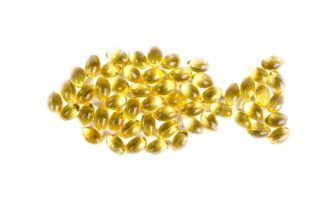
Vitamin D
A growing body of evidence indicates that supplementing with vitamin D can help to reduce the severity and duration of symptoms associated with a concussion, as well as help to improve cognitive functioning. For example, a study in the American Journal of Clinical Nutrition found that participants who supplemented with 4,000 IU of vitamin D per day for 12 weeks reported significant improvements in balance, reaction time, and tactile sensitivity compared to those who did not receive supplementation.
Additionally, a review published in the journal Sports Medicine found that supplementing with vitamin D may reduce the amount of time it takes for an individual to return to their baseline performance after suffering from a concussion. This is likely due to its neuroprotective effects and ability to reduce inflammation.
Vitamin D also appears to have beneficial effects on depression-like symptoms which can occur after a concussion. A study published in BioMed Research International found that among individuals who had suffered minor head injuries or mild TBIs, those who supplemented with vitamin D saw greater improvement in depressive symptoms than those who did not receive supplementation. Overall, these findings suggest that supplementing with vitamin D may be a beneficial adjunct treatment for aiding recovery after concussion or other mild brain injuries.
Magnesium
Magnesium supplementation has been found to be beneficial in supporting recovery after concussion. A recent systematic review of studies published in the American Journal of Medicine concluded that magnesium supplements may reduce the severity, duration, and frequency of post-concussion symptoms such as headaches, sleep disturbances, dizziness, and cognitive impairments.
In addition to reducing symptoms following a concussion, magnesium supplementation has also been shown to aid in the repair of neuronal damage caused by the trauma. For example, a study published in The Neuroscientist journal showed that magnesium was able to attenuate neuronal damage by increasing protective proteins and reducing glutamate levels in rats with traumatic brain injury (TBI).
Furthermore, a study conducted on college football players revealed that those who received magnesium supplements reported fewer concussions over a three year period than those who did not receive supplementation. This suggests that magnesium may provide some protection against concussions by increasing brain resilience and aiding in recovery after an event occurs.
While more research needs to be done in order to gain further insights into how magnesium affects the recovery process following a concussion, current evidence suggests that it is a safe and effective way to help support recovery after such an injury.
Cannabidiol
CBD has been found to be a valuable supplement for those who have sustained a concussion. Studies have shown that CBD can help reduce inflammation, which can occur after a traumatic brain injury (TBI). It can help stabilize the post-injury neurochemistry of the brain, which is often affected due to a concussion. People who use CBD after sustaining a concussion often report feeling more alert and motivated, as well as having better concentration and short-term memory. CBD is also known to decrease anxiety and depression, two common side effects of TBIs.
CBD can also help to reduce headaches and improve sleep quality, both of which are important for healing from a concussion. Furthermore, some studies suggest that CBD may even protect against future cognitive decline by preserving brain cells and protecting them from damage caused by free radicals. All in all, taking CBD following a concussion could make the healing process easier and more comfortable for those who have experienced head trauma. As with all supplements it is important to consult with your healthcare practitioner prior to use in order to know proper dosage and common side affects and interactions.
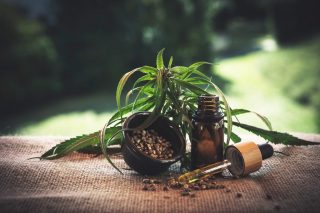
Vitamin B12
Vitamin B12 supplementation can be an effective tool for recovery after concussion, as evidence suggests that B12 deficiency may contribute to post-concussion syndrome. One study found that patients with chronic post-concussion syndrome were more likely to have lower serum B12 levels, suggesting a potential link between Vitamin B12 deficiency and the condition (Al Abed et al., 2018). B12 supplementation has also been suggested as a potential treatment for post-concussion headaches due to its anti-inflammatory properties (Lakhani et al., 2020).
Additionally, Vitamin B12 has been shown to support cognitive function by aiding in the biosynthesis of neurotransmitters, which are essential for proper brain functioning (Matthews et al., 2016).
Zinc
Zinc is an essential mineral for human health, and supplementation with zinc has been linked to faster recovery times from concussion. Evidence from a study published in the Journal of Neurotrauma suggests that zinc may improve recovery time following a concussion. In their study, researchers found that administration of zinc sulfate within 24 hours after the initial diagnosis of concussion significantly improved recovery outcomes for patients.
Another study in the journal Nutrients showed that taking high doses of zinc was associated with better cognitive performance following a mild traumatic brain injury (mTBI). This is likely due to the fact that zinc plays an important role in the structural integrity of synapses and neurons, as well as helping to reduce inflammation in the brain which can occur after concussions. Taken together, these studies suggest that supplementing with zinc can be beneficial for those who suffer from a concussion and should be strongly considered for those looking to enhance their recovery times.
Probiotics
The use of probiotic supplementation to support recovery from concussions is gaining increased recognition in the medical community. Research conducted on this topic has consistently demonstrated that probiotics may be beneficial for those recovering from mild-to-moderate traumatic brain injury (TBI).
A study published in 2017 showed that daily consumption of a probiotic supplement containing both Lactobacilli and Bifidobacteria, resulted in an improvement in cognitive functioning, including attention and verbal memory, as well as enhanced emotional regulation up to 6 months after TBI. This finding offers potential new treatment strategies for those recovery from concussion-related symptoms.
Other studies have also indicated that probiotics may be useful for patients suffering from post-concussive syndrome (PCS). In a randomized controlled trial conducted in 2018, researchers found that participants who took a multispecies probiotic supplement reported fewer PCS symptoms one month following their treatment than did those who received the placebo. Furthermore, another study showed that taking a probiotic supplement daily could reduce levels of systemic inflammation, which has been linked to longer periods of recovery time following a concussion.
Overall, there is evidence to suggest that probiotics can play an important role in supporting concussion recovery by providing neuroprotection and promoting overall health. Probiotics have been identified as having neuroprotective effects due to their ability to promote gut homeostasis and modulate neuroinflammatory processes which can help improve cognition and reduce inflammation.
While further research is needed to determine the exact mechanisms by which probiotics might support recovery following concussion, current findings suggest that this type of supplementation may be an effective adjunctive treatment option.

Curcumin
Curcumin supplementation may have a beneficial effect on recovery from concussion. This is because curcumin is a powerful antioxidant that scavenges oxidative stress and inflammation, both of which can contribute to the progression of post-concussion syndrome (PCS) symptoms. A 2019 study published in the journal Brain Impairment found that curcumin supplementation significantly reduced PCS symptoms in patients with mild traumatic brain injury when compared to placebo. The study concluded that curcumin has potential as an effective supplement for reducing PCS symptoms.
Additionally, another study published in 2020 in the European Journal of Nutrition found that curcumin improves cognitive function after experiencing a concussion due to its anti-inflammatory properties. Participants of this study experienced improved memory and attention following supplementation with curcumin over the course of six weeks.
Furthermore, another 2020 study published in Brain Injury showed that curcumin supplementation may protect against microglial activation, which is one of the leading causes of inflammation after a concussion. This suggests that by supplementing with curcumin, individuals may be able to reduce their risk for developing neuroinflammation after sustaining a concussion.
Glutamine
Glutamine supplementation may be a valuable tool to support recovery after concussion. Research has shown that glutamine supplementation can reduce cerebral edema and improve neurovascular autoregulation after concussion, as well as promote repair of damaged neurons and axons. Studies have also suggested that glutamine supplementation can reduce post-concussion symptoms such as headache, dizziness, confusion, difficulty concentrating, memory loss and fatigue.
One study reported that patients with mild traumatic brain injury who received glutamine supplements experienced faster resolution of their symptoms compared to those who did not receive supplements. Another study found that participants with moderate-to-severe traumatic brain injury who received glutamine supplements had improved cognitive performance on tests measuring attention span and working memory. Thus, glutamine supplementation can be beneficial for recovery from concussion by helping to reduce symptoms associated with injury and aiding in neurological repair processes.
Carnitine
Studies have demonstrated that the administration of the amino acid L-carnitine, in combination with traditional physical and cognitive therapy, can lead to faster and more complete recovery from concussion.
Carnitine helps to maintain the brain’s energy balance, as it helps transport fatty acids across mitochondrial membranes for energy production. This process helps support healthy neural pathways, which can help reduce the symptoms of concussion and improve overall recovery time.
Additionally, carnitine works to protect neurons from oxidative damage by stimulating antioxidant activities and increasing glutathione levels in the brain. Observational studies suggest that carnitine supplementation may also alleviate some of the long term consequences associated with concussion such as decreased concentration and memory issues.
CoQ10
Finally, Coenzyme Q10 has been found to protect brain cells from free radical damage caused by a traumatic event like a concussion, helping to speed up the healing process.
CoQ10 supplementation has been studied as a potential tool to support recovery after concussion. In one study, patients with mild traumatic brain injury were given CoQ10 for 8 weeks and demonstrated improved neurological symptoms compared to the placebo group. Specifically, the CoQ10 group reported reduced headache frequency and intensity, increased cognitive performance on a standard battery of tests, and overall reduction in disability.
In another study, patients with acute mild traumatic brain injury were supplemented with CoQ10 for 8 weeks. Participants reported statistically significant improvements in quality of life, cognition, and alertness when compared to those who received a placebo. Additionally, MRI scans performed on the subjects revealed less white matter lesions in those who had been provided CoQ10 as opposed to the control group.
CoQ10 supplementation can be used to support recovery after concussion by improving clinical scores related to cognition and disability while also helping reduce oxidative stress and inflammation associated with MTBI pathology.
All these supplements should be taken under the guidance of a healthcare provider in order to maximize their effectiveness in treating and healing a concussion.
Be Mindful of Your Symptoms
It’s important that you monitor your symptoms closely after sustaining a concussion so that if they get worse, you can seek medical help right away. Common signs and symptoms include headaches, dizziness, nausea/vomiting, sensitivity to light and noise, difficulty concentrating or remembering things, feeling tired all the time, blurred vision or double vision, slurred speech, and irritability/mood changes such as depression or anxiety. If any of these symptoms persist beyond three weeks following the injury or become severe enough interfere with daily life activities (e.g., work/school), you should contact your healthcare provider for further evaluation and treatment if necessary.
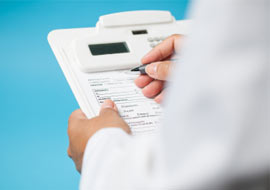
Conclusion
Recovering from a concussion can take anywhere from several days to several months. Everyone heals differently depending on individual circumstances such as age, medical history etc., so it’s important that you talk with your healthcare provider about what will be best for managing your particular situation going forward. By allowing yourself time to heal mentally and physically while being mindful of any changes in symptomotology throughout the recovery process and following all instructions provided by your healthcare provider accordingly will help ensure an optimal recovery outcome long-term!
Vitamin D is an essential vitamin that helps our body absorb calcium, promote healthy bones and teeth, and regulate our immune system. It’s often referred to as the “sunshine vitamin” because our body creates it when we’re exposed to sunlight. But many people have difficulty getting enough vitamin D from exposure to the sun alone, especially in winter. Therefore for some of us it is necessary to take a vitamin D supplement to achieve optimal levels.
So what are the main benefits of vitamin D? Let’s take a look at 10 top benefits of this important nutrient.
1. Strengthens Bones and Teeth
Vitamin D plays a pivotal role in helping our bodies absorb calcium, which is essential for strong bones and teeth. Research has shown that having low levels of vitamin D can increase your risk of developing osteoporosis, a condition characterized by weak and brittle bones, in later life.
2. Improves Immunity
Studies have found that people with adequate levels of vitamin D are better able to fight off infections such as colds and flu than those who don’t get enough of the nutrient in their diets. This is because Vitamin D helps regulate our immune system by producing proteins called antimicrobial peptides that help fight off invading bacteria and viruses.
3. Helps Regulate Blood Pressure
Low levels of vitamin D can lead to higher blood pressure, which can increase your risk for heart disease and stroke if left unchecked over time. Adequate levels of vitamin D help keep your blood pressure at healthy levels, reducing your overall risk for cardiovascular-related health issues.
4. Reduces Inflammation
Inflammation is one of the body’s natural processes which helps protect us from infection and injury, but too much inflammation can be damaging to our health over time. Low levels of vitamin D have been linked to increased inflammation in the body, so maintaining optimal amounts through diet or supplementation may help reduce the risk for chronic inflammatory diseases such as asthma or arthritis.
5. Improves Mental Health
Recent studies have shown that there may be a link between low levels of vitamin D and depression or anxiety symptoms in some individuals. It’s believed that this connection may be due to how vitamin D affects certain neurotransmitters in the brain such as serotonin which play a role in regulating mood and emotions.
6. Protects Against Cancer
Low levels of vitamin D have been associated with an increased risk for certain types of cancer including colon cancer, breast cancer, prostate cancer, and ovarian cancer among others. While more research needs to be done on this topic, it’s believed that adequate intake or exposure to sunlight could help reduce your overall risk for developing these cancers over time.
7. Improves Muscle Strength
Vitamin D plays an important role in muscle strength since it helps regulate calcium absorption into muscles tissues which allows them to contract properly during exercise or physical activity. Research has also shown that having low levels of this vital nutrient could lead to weaker muscles over time so getting enough through diet or supplementation may help improve muscle strength over time.
8. Boosts Brain Function
Studies suggest that having adequate amounts of vitamin d could help boost cognitive function by improving memory recall and alertness. Vitamin D helps regulate certain neurotransmitters like glutamate which play a role in learning and memory formation.
9. Lowers Risk Of Diabetes
There is evidence suggesting that low levels of this nutrient could increase your chances for developing type 2 diabetes since it helps regulate insulin production.
10. Decreases Risk Of Heart Disease
Maintaining adequate amounts through diet or supplementation has been linked with lower risks for heart attack and stroke. Vitamin D helps reduce inflammation within arteries therefore decreasing plaque build-up overtime.
Vitamin D supplementation
Besides sun exposure, Vitamin D supplements provide the most convenient way to ensure the adequate dosage is taken; however it is recommended that you get a lab test done first to determine your Vitamin D levels and then adjust your supplementation accordingly. The current international recommendation for Vitamin D intake stands at 400-800 IUs/day, however some people may need higher doses depending on their individual situation. Vitamin D supplementation can also be obtained through dietary sources such as cod liver oil or fortified foods. When supplementation is not enough to raise a severely low vitamin D level, a high dose injection is an option. For more information on how sun exposure affects vitamin D click here.
Conclusion
As you can see, there are numerous benefits associated with getting enough Vitamin D through diet or exposure to sunlight everyday! From strengthening bones and teeth, to reducing inflammation and improving mental health —this essential nutrient truly plays an integral role in keeping us healthy! For those who aren’t able to get enough naturally through foods rich in Vitamin D like fatty fish (such as salmon), eggs, mushrooms, and fortified milk, supplementation may be necessary depending on individual needs. Consulting with a medical professional would be a great way to ensure that your vitamin D level is optimal.
Introduction:
As a parent, you want what’s best for your child. You want them to be happy and healthy, and you’ll do whatever it takes to make that happen. But sometimes, figuring out “what’s best” can be tricky.
Take food sensitivity testing for kids, for example. You may have heard that it’s something you should do, but you may not be sure why or how. Don’t worry – I’m here to help! In this blog post, I’ll answer all of your questions about food sensitivity testing for kids so that you can make an informed decision about whether or not it’s right for your family.
What is food sensitivity testing?
Food sensitivity testing is a way to determine if your child is sensitive or allergic to certain foods. It’s important to note the difference between a sensitivity and an allergy – a food allergy is an immune system reaction that can occur after eating even a small amount of the offending food, and it can be life-threatening. A food sensitivity is less severe, but can still cause uncomfortable symptoms like nausea, stomach pain, diarrhea, eczema and headaches. If your child has any of these symptoms after eating certain foods, they may have a sensitivity to those foods.
Why is food sensitivity testing important?
If your child is sensitive to certain foods, it’s important to avoid those foods for a period of 12 weeks so that their immune system can clear the problematic antibodies Sometimes, even small amounts of the offending food can trigger symptoms. By identifying which foods your child is sensitive to, you can help them avoid those foods, feel their best, reset the immune system and perhaps reintroduce those foods in the future.
How is food sensitivity testing done?
There are several ways to test for sensitivities to specific foods. The most common method is a blood test. Your naturopathic doctor can give you a requisition for food sensitivity testing at your local lab. A small amount of blood is taken from either a vein or finger tip. This blood sample is sent for testing to detect IgG antibodies associated with particular foods. When the result is ready foods will either be identified as normal, borderline or elevated. At this point your Naturopathic Doctor will be able to recommend a dietary protocol to help reduce the antibodies. If there is an unusual amount of sensitivities, this can be a sign of Leaky Gut Syndrome.
Leaky Gut Syndrome
Leaky gut syndrome is a condition that can be caused by food sensitivities. It occurs when the lining of the intestines becomes damaged, allowing bacteria, food particles and toxins to leak into the bloodstream. This can lead to a wide range of symptoms, including fatigue, joint pain, skin problems, and digestive issues.
Treatment typically focuses on removing trigger foods from the diet and healing the gut lining with supplements and probiotics. In some cases, leaky gut syndrome can resolve on its own with time and supportive care.
Conclusion:
If you’re wondering whether or not your child should get food sensitivity testing done, we hope this blog post has helped clear things up for you! Testing can be a helpful way to identify which foods your child should avoid in order to feel their best every day. If you have any further questions about food sensitivities or allergies, don’t hesitate to reach out to me. I’ll be more than happy to help!
The mind body connection
The mind and body are closely connected through thousands of chemical messengers. When we have a mental experience the brain sets off a cascade of neurotransmitters and hormones that affects our body. For instance when we experience joy, our body produces the hormone oxytocin. Oxytocin reduces blood pressure, stress hormone, anxiety and promotes growth and healing. Conversely, when we experience an emotion like sadness this can raise stress hormone, increasing blood pressure and eliciting negative effects on the immune system. Psychotherapy can therefore have a big impact on the health of our body by modifying mental outlook and thus inducing positive chemical messengers to the rest our body. An example is cognitive behavioural therapy, which has well documented success in the treatment of depression, anxiety and stress. https://pubmed.ncbi.nlm.nih.gov/ 31004323/
We can also treat conditions of the mind through our body. In pharmaceutical medicine, drugs like anti-depressants can block the breakdown of the neurotransmitter serotonin. Serotonin is involved in mood and therefore in some individuals boosting serotonin activity can improve mood and decrease anxiety. However, some short falls of pharmaceutical medicine is that it can often cause unwanted side effects and have a narrow therapeutic range; meaning that too little may have no effect and too much can be deadly. There are also issues with dependancy and addiction.
On the other hand nutritional and herbal supplementation can be an effective treatment for depression, stress and anxiety without the same safety concerns as drugs.
Supplementation for depression
Depression is both a physical and emotional condition. We know that depression can impact the reproductive system, immune system and our nervous system. Nutritional deficiencies can arise as a result of long standing depression and can be a precursor in the development of a depressive condition. Deficiencies in vitamin B12, vitamin D and protein are associated with depression. https://pubmed.ncbi.nlm.nih.gov/ 23377209/ In my Toronto clinic we can identify and correct nutritional deficiencies and make a big impact on depressive symptoms.
There is also a lot to be said about the impact of chronic inflammation on brain and mental health. Research has shown that chronic inflammation can increase susceptibility to depression. https:// pubmed.ncbi.nlm.nih.gov/32553197/ At the Toronto clinic we treat inflammation using supplements such as curcumin, omega-3 fatty acids and cannabidiol (CBD). These supplements can improve depressive symptoms through modulation of inflammation.
Furthermore many natural health products like CBD can also impact neurotransmitters (brain messenger chemicals) directly associated with depression. Through the interaction of cannabinoid receptors, 5-HT1A (involved in serotonin regulation) and neurogenesis factors CBD can act similarly to an anti-depressant medication but with less potential for adverse effects. At the Toronto clinic I offer cannabis education and counselling when cannabinoids would benefit a patients condition.
Supplementation for Anxiety
Anxiety disorders are the most common mental illness in the United States effecting close to 20% of the population every year. While genetics play a significant role in the development of an anxiety disorder, biological and environmental factors are pivotal as well. We know that there are often disruptions in serotonin and dopamine, cortisol and adrenaline in anxiety syndromes. A common class of drugs used in the treatment of anxiety are the benzodiazepines (Xanax, Valium, Ativan etc…). Although these medications can be very effective, they often have significant side effects (drowsiness, depression, constipation). Benzodiazepines can also be difficult to stop once started. One of the most significant mechanisms in which anti-anxiety medications work is through the GABA receptor system.
GABA is an inhibitory neurotransmitter, meaning that it helps to calm the nervous system and muscular skeletal system. Benzodiazepines have a very strong effect on GABA receptors making them effective but also potentially dangerous.
Many nutraceutical compounds activate the GABA pathway but with a gentler effect than benzodiazepines. Pharma GABA (GABA produced by bacteria), Passionflower, St. Johns Wort, Taurine, 5-HTP and CBD all have well documented effects on GABA and Serotonin. At the Toronto clinic we use these compounds successfully in the treatment of anxiety syndromes with less potential for adverse effects.https://pubmed.ncbi.nlm.nih.gov/ 11679026/
Supplementation for Stress
Every single human being experiences stress throughout their life. Stress can be a healthy natural process in the right circumstances and at the right time. Stress becomes pathological when it is experienced chronically and without appropriate instigation. Long lasting stress can have detrimental effects on multiple biological systems including the immune system, endocrine system (hormones) and cardiovascular system. https:// www.ncbi.nlm.nih.gov/pmc/articles/PMC5137920/
There are no specific pharmaceutical interventions in the treatment of stress. Benzodiazepines are the most common class of drug prescribed for debilitating stress and as I mentioned in the section on anxiety, benzodiazepines can have significant side effects and issues with dependency.
Since there is a wide spectrum of factors that can cause stress a “one size fits all” approach is not always effective. The naturopathic approach is fundamentally holistic and therefore takes into account mental, emotional and physical stressors. For instance a change in work schedule may be contributing to sleep disruption, leading to insomnia, poor work performance and nutritional disruption.
Furthermore, there is an entire class of nutritional and herbal supplements called adaptogens. Adaptogens have the ability to modulate cortisol (stress hormone) preventing peaks and dips in cortisol levels throughout the day. Overtime treatment with adaptogens facilitate a more balanced cortisol output avoiding periods of hyperactivity and burnout. To my knowledge there are no pharmaceutical drugs that act in a similar way. Some common adaptogens are: Ashwagandha, Rodiola and Siberian Ginseng. Vitamins like Vitamin C and Magnesium can help support adrenal function further helping the body to avoid burnout in periods of prolonged stress. At the Toronto clinic I use these adaptogenic compounds in conjunction with other treatments to provide a safe and effective treatment plan for chronic stress.
The mind can be treated through the body. Pharmaceutical interventions can be effective but often come with safety concerns around adverse effects and dependancy. There are many safe and effective natural approaches to mental health conditions through supplementation. At my Toronto clinic we specialize in developing an individualized plan to help achieve your mental health goals.
“Let food be thy medicine, and let medicine be thy food”; a famous quote from the Classical Grecian physician Hippocrates. Lions Mane mushrooms are a perfect embodiment of this philosophy; as delicious as it is therapeutic.
Lions mane (Hericium Erinaceus) is a white clumpy mushroom with long dangling spines that tends to grow in late summer/early fall on hardwoods.
I was first introduced to Lion’s Mane a few years ago when I had a few patients tell me they were using an extract of the mushroom to help with memory. Supplements that enhance brain activity, AKA Nootropics, have always tweaked my interest as one of my areas of clinical focus is in neurology. At first I thought that maybe this is the newest “superfood fad” but once I began to investigate the research on this mushroom my opinion quickly changed.
It was clear that Lions Mane had some legitimate therapeutic value in inflammation, the immune system, psychiatric conditions, cognitive enhancement, diabetes, heart disease, bowel disease and cancer.
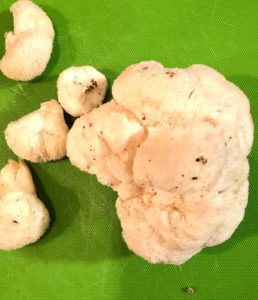
Inflammation and Depression
A 2012 study demonstrated that Lions Mane mushroom contains several compounds that have moderate to high levels of antioxidant capacity. This translates into an anti-inflammatory effect in the body. A 2015 study demonstrated that participants who consumed Lions Mane had less depressive symptoms and improvements in blo-markers of depression which was attributed to it’s anti-inflammatory effects. Another study demonstrated that Lions Mane can enhance immune function possibly by reducing inflammation and oxidative stress.
Immune
Not only does Lions Mane help boost immune function by reducing oxidative stress, it also seems to benefit intestinal immune function. A study on mice revealed that some of the proteins in the mushroom help encourage the growth of beneficial bacteria in the gut.
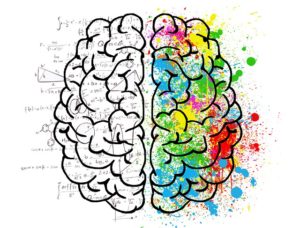
Memory
Cognitive enhancement is the main reason that I see people taking this mushroom. It is possible that it does have some cognitive enhancement properties but all the research so far has been done on animals. One such study found that mice given a lion’s mane supplement had better object recognition and recognition memory. Other research suggests that Lions Mane may have the potential to prevent or treat conditions of cognitive decline like Alzheimer’s and Parkinson’s disease.

Heart Health
Research on rats has demonstrated that Lions Mane may have cholesterol lowering effects and blood pressure lowering effects. Compounds in Lions Mane may help in the production of Nitric Oxide, which helps keep blood vessels relaxed.
Cancer
The antioxidant properties of Lions Mane may contribute to some anti-cancer effects seen in rat and in vitro studies. One in vitro study indicated that Lions Mane has activity against human leukemia cells. Another study showed that in mice, Lions Mane has activity against Liver, Colon and Gastric cancer cells.
Diabetes
After 4 weeks of Lions Mane supplementation, rats with diabetes had lower blood sugar levels than those who did not receive the mushroom. Diabetes can often result in life altering nerve damage. A 2015 study showed that diabetic rats given an extract of Lions Mane had reduced nerve pain and improved antioxidant activity after 6 weeks.

Digestive Health
I previously discussed how Lions mane can have anti-inflammatory effect of the digestive tract, as well as benefitting the growth of “good” intestinal bacteria. Another study demonstrated that Lions Mane has some interesting antimicrobial effects. Notably, Lions Mane seems to inhibit the growth of H-pylori, a bacteria responsible for close to 80% of stomach ulcers.
Nerve Repair
One of the most fascinating health benefits of Lions Mane came out of a rat study. Rats with nerve damage who were given daily extracts of Lions mane had quicker nerve cell regeneration than those who did not.
Culinary
Up until a few weeks ago I thought Lions Mane was an exotic mushroom that was only used therapeutically as a supplement. Recently, I found myself in a local Farmers Market and low and behold a mushroom farmer was selling fresh Lions Mane; I was amazed! I asked the farmer “how do I prepare this”? He told me to cut the mushroom in ½ inch slices and in a hot pan with butter, sear both sides. So, I bought some and followed his advice, and discovered that Lions Mane is absolutely delicious! It is now one of my favorite cooking mushrooms and I have since heard from many foodies and chefs that it is one of their favorites too. So let food be thy medicine everyone, and cook up some Lions Mane this fall!
Citations
Leonard, Jayne. “What are the benefits of lion’s mane mushrooms?.” Medical News Today. MediLexicon, Intl., 22 Oct. 2018. Web.
30 Oct. 2019. <https://www.medicalnewstoday.com/articles/323400.php>
Leonard, J. (2018, October 22). “What are the benefits of lion’s mane mushrooms?.” Medical News Today. Retrieved from
https://www.medicalnewstoday.com/articles/323400.php.
| Lion’s Mane Mushroom, <i>Hericium erinaceus</i> (Bull.: Fr.) Pers. Suppresses H<sub>2</sub>O<sub>2</sub>-Induced Oxidative Damage and LPS-Induced Inflammation in HT22 Hippocampal Neurons and BV2 Microglia. |
| Kushairi N, Phan CW, Sabaratnam V, David P, Naidu M. |
| Antioxidants (Basel). 2019 Aug 1;8(8). pii: E261. doi: 10.3390/antiox8080261. |
| PMID: 31374912 [PubMed] Free Article |
| Thirteen-Week Oral Toxicity Evaluation of Erinacine AEnriched Lion’s Mane Medicinal Mushroom, Hericium erinaceus (Agaricomycetes), Mycelia in Sprague-Dawley Rats. |
| Lee LY, Li IC, Chen WP, Tsai YT, Chen CC, Tung KC. |
| Int J Med Mushrooms. 2019;21(4):401-411. doi: 10.1615/IntJMedMushrooms.2019030320. |
| PMID: 31002635 [PubMed – indexed for MEDLINE] |
| In Vitro and In Vivo Inhibition of Helicobacter pylori by Ethanolic Extracts of Lion’s Mane Medicinal Mushroom, Hericium erinaceus (Agaricomycetes). |
| Wang G, Zhang X, Maier SE, Zhang L, Maier RJ. |
| Int J Med Mushrooms. 2019;21(1):1-11. doi: 10.1615/IntJMedMushrooms.2018029487. |
| PMID: 30806251 [PubMed – indexed for MEDLINE] |
| Dietary Supplementation of Lion’s Mane Medicinal Mushroom, Hericium erinaceus (Agaricomycetes), and Spatial Memory in Wild-Type Mice. |
| Rossi P, Cesaroni V, Brandalise F, Occhinegro A, Ratto D, Perrucci F, Lanaia V, Girometta C, Orrù G, Savino E. |
| Int J Med Mushrooms. 2018;20(5):485-494. doi: 10.1615/IntJMedMushrooms.2018026241. |
| PMID: 29953363 [PubMed – indexed for MEDLINE] |
| A Polysaccharide Isolated from Mycelia of the Lion’s Mane Medicinal Mushroom Hericium erinaceus (Agaricomycetes) Induced Apoptosis in Precancerous Human Gastric Cells. |
| Wang M, Zhang Y, Xiao X, Xu D, Gao Y, Gao Q. |
| Int J Med Mushrooms. 2017;19(12):1053-1060. doi: 10.1615/IntJMedMushrooms.2017024975. |
| PMID: 29431066 [PubMed – indexed for MEDLINE] |
| Anti-Inflammatory Effects of Ethanol Extract of Lion’s Mane Medicinal Mushroom, Hericium erinaceus (Agaricomycetes), in Mice with Ulcerative Colitis. |
| Qin M, Geng Y, Lu Z, Xu H, Shi JS, Xu X, Xu ZH. |
| Int J Med Mushrooms. 2016;18(3):227-34. doi: 10.1615/IntJMedMushrooms.v18.i3.50. |
| PMID: 27481156 [PubMed – indexed for MEDLINE] |



